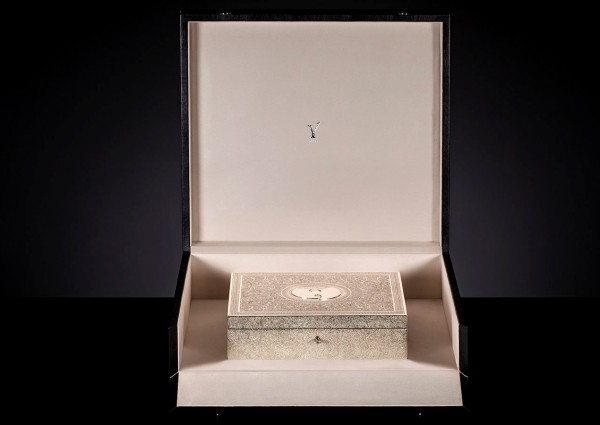Fuck This Wu-Tang Only-One-Copy Album, The Kickstarter, & All The Wingnut Bullshit [Part 2/3]
Why winning Wu-Tang’s secret multi-million dollar album in a kickstarter campaign, might not be winning at all / fighting “the man” while you kiss his ring.
[CLICK HERE to read part 1]
THE BOX DOESN’T MATTER/WHAT IF THEY DO WIN?
I ended the last installment while exploring the logistics of New Yorkers, Russell Meyer (29) and Calvin Okoth-Obbo (26) attempting to raise $5 million dollars in a kickstarter campaign with the intention of putting a bid on Wu-Tang‘s single-copy 31 track double album/art project, The Wu – Once Upon A Time In Shaolin, and releasing the music to the public. In that section I questioned what would happen to the physical copy of the album if they obtained it, as well as what would happen if they collected the funds from everyone, but were still unable to win the bid.
As far as what would happen to the physical copy of the album encased in the silver and nickel-plated box, the pair, more or less, addressed that with the only other “frequently asked question” that was added to their campaign page: donating it to “a museum” “seems to be the best option in [their] opinion.” They further added that “Since this will be a group effort to win the bid, it doesn’t seem fair for any single one of us to be the sole owner of the physical product.” But if they had considered adding a backer reward offering a number of raffle entries toward winning the physical box, respective to the dollar amount donated–something like 1 entry for every $5, or so–it may have provided more of an incentive for people to not only donate, but continue to donate even once the goal was reached, increasing their likelihood of making a solid bid for this thing.
But why does it even matter, anyway? I mean, “the box doesn’t even matter”, right? It’s all about the music… right? That’s what a number of people have made failed attempts to educate me about, anyway. After someone made those sentiments in the reddit thread, I gave the following response, which was popular among some and much less among others:
That’s great and all, but in essence you’re just chipping in to buy someone else a priceless one of a kind item that they’ll let you listen to. It’s not just a physical copy of an album, it’s encased in a hand crafted silver and nickel plated work of art, which is being treated as such. This is similar to the idea of everyone chipping in to buy someone a famous painting that can only be viewed if you travel to the museum, but if they owned it, they’d upload a jpeg to the internet.
The first response was about how the two examples differ due to the nature of visual art in a live setting–witnessing the brush strokes, etc–versus audio, which they claimed wouldn’t be at all subject to a lesser or altered experience, since it’s being distributed in a digital format. Of course, that theory is in direct opposition to RZA‘s claims about creating/providing a unique experience and relationship to the music through the very avenues that they seek to undermine. But I’ll address that momentarily, among other things, including it’s digitization.
A separate irritated response arrived as follows:
you’re not understanding the thought process behind this at all. the people who are gonna put 10, 20 or 50 bucks into the kickstarter were never going to get the physical copy. it’s no skin off their back no matter who wins it. with this idea, they get the benefit of being able to hear the music. who gives a shit if they’re helping someone else get the physical copy? that doesn’t hurt them at all
My response?
No, I get it, and you’re right. Could everyone send me 10, 20, or 50 bucks?
People have become very passionate about this project, because once millions of dollars and questions about the true nature and value of art enter into a conversation, it becomes a question about one’s own personal priorities, belief systems, and where they lie in relation to those things. It’s the noble move to choose art and want to protect it, and this kickstarter campaign is, essentially, intended to make such a statement as loudly as possible. The issue is that it really doesn’t. I appreciate the sentiment that “the box doesn’t matter” and that it’s all about the music, but I don’t subscribe to that belief myself. In fact, I even believe that those making those claims honestly believe what they’re saying to be the truth and that, on some level, they are correct. But at its core, this logic is also intrinsically flawed. Their quest against superficiality only holds weight if viewed from a very superficial perspective at a superficial level. The truth is that any actions that involve attempting to purchase and distribute the album under the financial terms laid out have to be counterproductive to what they claim and believe to support.
Believe it or not, there’s still a lot here to discuss, so let’s just start with approaching this from a scenario where everything’s moved forward as planned, Russell and Calvin actually have been able to purchase the album, and now have it in hand. Can they legally even distribute the music? What exactly do they own; the only copy, or the rights to the material on that copy? The mission statement for Once Upon A Time is pretty straight forward about it being a reaction to “industrial production and digital reproduction,” stating quite clearly that “the music will only ever have one incarnation” and “it will not be made available digitally or in any other existing mass format.” The entire project relies on those basic principles, so it’s not that far fetched to assume that the object could be delivered with a legally binding contract restricting the contents from being redistributed, made widely available, or even shared at all. In 2003, Carly Simon raised $50,000 in a charity auction by offering to reveal the secret to who her 1972 track, “You’re So Vain” was about to the winning bidder, NBC Sports President, Dick Ebersol. The stipulation was that he had to keep the information to himself; so there is a precedent.
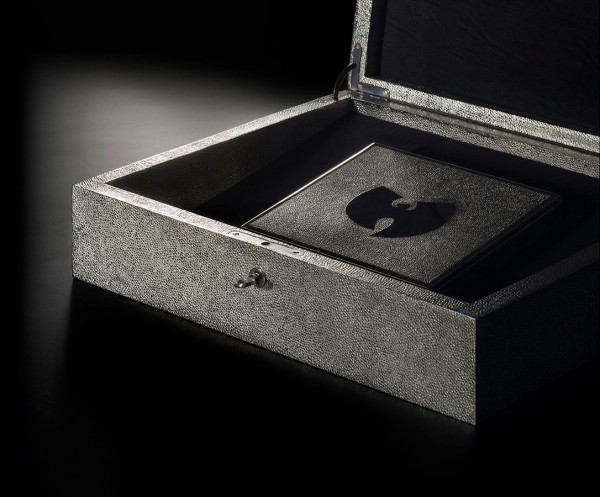
Here’s an even wackier question: “What format is it in?” The assumption is that there’s a disc or 2 in that box and I’m pretty sure that I’ve heard RZA mention that they still needed to transfer the digital files, but I haven’t seen anything confirming that it was a CD. How could they prevent the distribution and transfer if it was? “The music will only ever have one incarnation.” Technically, it would also have to be the same copy that’s already been toted around from museum to gallery to festival tent, making it highly susceptible to scratches, damage, and skipping. If that’s the case, it wouldn’t add up not to have a back up, and the first thing that someone would do if they won it, would obviously be to load it onto their computer or a harddrive, to avoid having to pull that actual $5 million copy out and risk damaging it. If RZA and Cilvaringz‘s honest intention is to restrict the release to one copy, do they intend to destroy the original masters like a photographer making prints off a negative? Does that box actually house the masters? What if there’s a DAT tape in there? What I’m really asking is, what if in the end, whether due to legal or formatting restrictions, all that the winners really wind up with is that damn box that everyone claimed didn’t matter, in the first place? Nobody gets their money back. Does it still go to a museum? What museum even takes it?
By framing their mission statement all around the idea that a piece of music not only can be, but inherently is, a piece of art on par with any other fine work, The Wu have effectively taken the focus off of the very real and very tangible piece of art that is supposed to house it. This logic has been so effective that I’m not entirely convinced that it would be beyond them to get away with pricing the soundwaves pumping out of the speakers of a Rolls Royce Phantom that has a CDR permanently jammed into it’s stereo system–but you know, the car isn’t important, those sweet doomy beats are. More than a box, the container for Once Upon A Time In Shaolin was meticulous designed and crafted by a highly sought after world renowned artisan/craftsman over a 3 month period, but it is being entirely dismissed straight away because of its immediately evident intrinsic value, while the music that is supposedly contained therein skyrockets in theoretical value, simply because its worth has been put into question. So, does my focus on Yahya‘s box place me firmly on the capitalistic superficial side of the conversation? It would appear to plenty that, at face value, it would indeed. But I can’t be the only one who appreciates the vision, skill, time, and artistry that went into the Yahya‘s work, while so many others seem all too eager to fling that box open, dump out the contents, and haphazardly toss it over their shoulders, while screaming, “Where’s the art?! I know that there’s some art in here somewhere?! Where is it?!” So, RZA equates owning the “only copy” of the music to possessing “the scepter of an Egyptian king,” a luxurious object crafted specifically for royalty. Meanwhile, the popular narrative has become that the one object that was crafted by an individual known to create works in a similar vein for actual royalty (almost exclusively), is just the hype to sell the music/”art.” To me, the box IS an example of fine art and, so far, the “secret music” hasn’t proven itself to be anything other than hype.
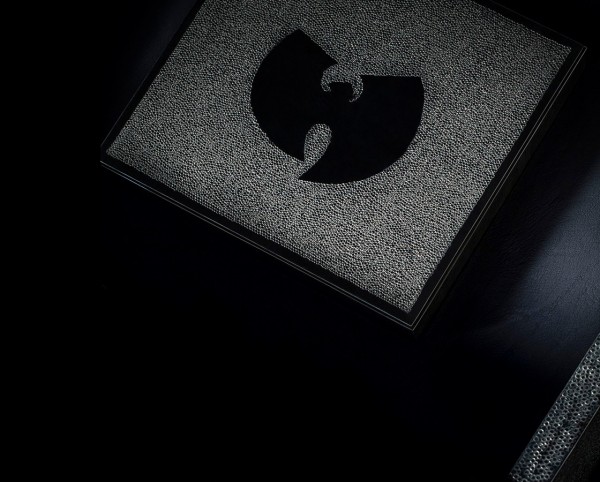
That immaculate container is the only piece of art connected to the project that I’ve actually witnessed up until this point. There are no images of the actual format containing the music, and I definitely haven’t heard it (there are a few really brief clips floating around that are said to be samples from the album, but I haven’t looked into the validity of that and, if they are legit, that’s not helping the premise of secrecy, lack of duplications, and exclusivity that they’re trying to sell this piece on). Everybody’s so obsessed with what’s behind the door, but what about that door. I would like nothing more than to find out, when it’s all said and done, that there was never anything in this box at all. The reality is that all that’s being put up for auction is an idea and all that’s in the box is an idea. But if the idea is supposed to be that the music is such a valuable entity that it should be able to stand on its own merits, then what’s the story with this fucking box? Selling it within the very same type of art which they’re claiming that it should be able to independently compete with side by side only works to dilute that line of thinking. They state that music in and of itself should be considered precious and not undervalued as high art, yet they still felt the need to encase it in that box and find a buyer that is strictly concerned with its monetary value and collectibility.
For anyone that still believes that it’s all about the music and not the package that it’s contained in, I have news for you; you’re simply just embracing the marketing ploy that’s being fed to you and, although it’s a concept with plenty of merit if viewed in a very broad and general sense, that concept IS the packaging. The idea isn’t only within the box, the entire box and everything that does or does not exist within it is suspended within this idea. Sorry folks, you are focused on the packaging. Why else would anyone be scrambling to raise millions for something like this? Am I starting to go too overboard? Am I losing everyone, or “exposing” myself as a phony half-assed Wu-Tang “fan” that doesn’t properly value the art that they are creating? Well, I’d like to point out that very little emphasis has even been placed on the actual music that’s supposed to be contained within that box, at all; most of the hype and coverage deals with the method of release. If possible, I’d like to hear someone explain to me how any of this is “really all about the music.” It isn’t.
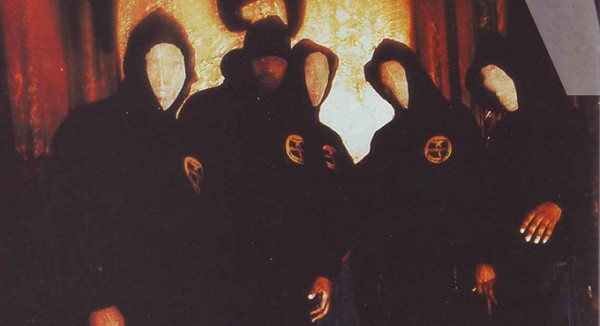
ROBIN HOOD THE SITUATION/WHAT RZA WOULD WANT
It’s all hype. Everything is running on the momentum generated by the proposition of an otherwise ridiculous concept: “the $5 million secret album.” The unsubstantiated claims–by the very person who initiated the concept, in the first place–that numerous other unnamed figures with bottomless monetary resources (read: in positions of “power” and “influence”) are, supposedly, in bidding wars and throwing cash into this hype-well, fuels that momentum even further. Then these 2 guys from New York (Astoria, Queens and Park Slope, Brooklyn, respectively) pop up and start a kickstarter campaign, effectively hopping onto the sides of this downhill boxcar racer, gripping on where they can, and kick pushing (not kick “starting”) their asses along with it. The focus and core of everything is lost in the blinding white headlights of this hype driven fiasco.
A website interviews the kickstarter duo. Pitchfork writes about the campaign that they’ve started with the intention of giving the album away “for free” (after everyone pays to have it purchased first, of course). The story gets swooped up into the overwhelming current of reddit. Consequence of Sound even titled their post about the campaign, “Let’s raise $5 million and buy Wu-Tang Clan’s one-of-a-kind album.” Everybody’s pushing this shit forward and endorsing it at every step of the way, but next to nobody’s been asking the real questions and, if they are, they seem to be perfectly content with never receiving any real answers.
This might seem insincere, but I’m honestly not trying to trash the intention behind the kickstarter campaign or the guys who started it, I’m just trying to break down what I see as the underlying realities of this whole zany scenario. And even if I don’t entirely agree with the approach that they’ve employed and I believe that the idea could have been flushed out a bit more thoroughly before deciding to launch it, Meyer and Okoth-Obbo are not fools and they don’t even necessarily expect to raise the money to make the bid; what they want to do is make a statement to the industry. Unfortunately, being the unabashed “hater” that I am, I don’t really agree with the statement–“maybe it will raise awareness to artists that fans are hungry for content and are willing to band together to try to achieve a common goal“–that they’re hoping to make, either. Personally, I think that the failure to raise the funds would make an even larger and much more potent statement than anything. The message that will send is that the poor fans tried with all their might to rally, but still couldn’t scrape together enough money to simply hear the music created by their trusted heroes, because the music simply isn’t for the people any more. It’s a sadder and less “triumphant” take, but it’s probably a more important and, potentially, more effective one.
The most revealing yet baffling statements that I’ve heard come out of this conversation about the kickstarter campaign are when Meyer said, “I have to believe that the Clan would prefer that fans the world over be able to collectively purchase and share the music vs one owner keeping it exclusive” (on reddit), and, “I can’t imagine RZA being upset if enough Wu-Tang fans get together and raise enough money to purchase [the album]” (the DNAInfo interview). No message has been clearer in regards to this project than the idea of it being purchased by “one owner” and making sure that it was kept “exclusive.” In fact, the official site for the project that we swiped all of the box images from is ezclziv.com. When I pointed out some instances where RZA was fairly direct about such restrictions and exclusivity indeed being his intention and what he wanted, adding “I respect that your intention is the exact opposite of that elitism and that it is to share it with the people, but it’s still under the terms proposed by the project (pay up and you can have it), while being the antithesis of what it claims to represent.” Meyer responded by admitting, “I share the same concerns and that’s why we kind of wanted to Robin Hood the situation if we could.”
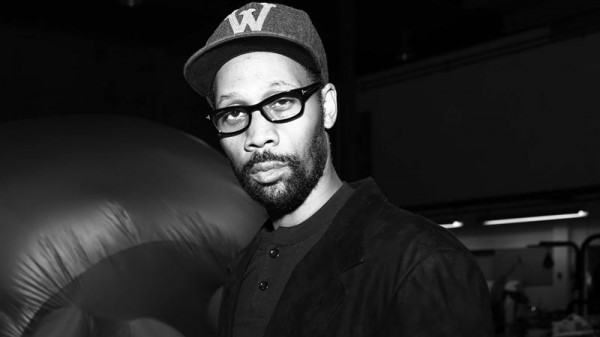
As far as the way that I’ve been looking at this thing, you can either view this whole Once Upon A Time project as an honest effort to sell an exclusive “secret” album as a collector’s item for a multi-million dollar pricetag, or you can see the entire project as a complete farce and an attempt to make the statement about what people are willing to do; not necessarily what they should do. Now, if you believe in the elitist angle and that the whole thing is a 100% legit attempt to keep an album under wraps and in super elite hands, then you can either support it or be against it for that reason. The same is true of the opposite. You’re either some rich joker willing to fork over the money happily, or you hate how pretentious the whole thing is and want nothing to do with it. If you see it as a huge scam, you can reject it for the trickery that it holds and want nothing to do with it, or you can give RZA and Cilvaringz their metaphorical high fives, support them for getting their cake from some loaded buffoon that’s getting fleeced Emperor’s New Clothes style, and bask in all of the entertainment and discussions that it generates.
In a nut shell, you either accept the premise or you don’t. If you understand the concept as it’s being presented and believe that the presentation and exclusivity surrounding the release of this project will create a greater understanding of art, as well as one-of-a-kind experiences that will never be duplicated for those able to hear it in the gallery setting, then you have to accept your role in undermining the entire project by trying to get your hands on it to distribute it, and not pretend as if you are supporting the artist’s goals. Now, if you believe that the artist’s goals are simply to get people to react in such dramatic ways–as I’m hoping that they are–then, of course, that’s another story altogether, and you’re just contributing as part of the play. The delusion that I find in the kickstarter founders’ approach and in those that support them, is that they are riding the line of aggressively denouncing the actions of RZA and company, while simultaneously claiming to wholeheartedly support him in making them. And I use the kickstarter founders as examples, yet again, not only because of their campaign and the attention that it’s receiving, but because I feel that they represent the perspective of a much larger demographic that’s playing an important role in this conversation.
Also of note is that Meyer was quoted during the DNAInfo interview as saying, “We’re all for changing times, but when you make the content exclusive and only able to be accessed by a select few, the fans suffer and it’s an elitist stance that doesn’t really jive [sic] with hip-hop culture,” demonstrating his clear understanding and acknowledgment of how cut and dry this situation really is. I completely agree with that statement and it’s a take that I believe sits right in the heart of the whole debate. You’re not going to find a more succinct evaluation of what’s really taking place here. So, where’s the disconnect between the the perpetrator and the actions being perpetrated? Well, that’s the fascinating part. Much like RZA himself is attempting to preach the importance and inherent value of art, while simultaneously pushing a marketing agenda, his loyal followers are, subconsciously or otherwise, separating RZA “the artist” from his role/responsibility as the very individual devising and putting into action what they themselves seem to interpret as nothing other than greed, elitism, and a lack of respect for the fanbase.
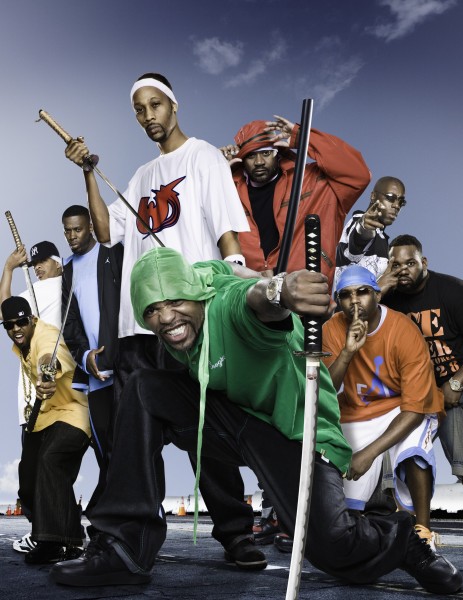 So who exactly would this kickstarter be attempting to “Robin Hood this situation” from (aka undermine) if not the Wu-Tang Abbot? He’s the one that they’re not only sure wouldn’t mind them taking and distributing the material, but would “prefer” it, remember? It’s not like these guys are Anonymous hacking computer systems and leaking the tracks onto the web. Meyer had a moment where he basically called RZA and Cilvaringz out in that quote above–“the fans suffer and it’s an elitist stance“–but, he doesn’t do it directly and by name. He and Calvin have insisted that they aren’t trying to undermine the project, but if they do view the project as oppressive, they SHOULD be trying to undermine it. If you believe that there’s sincerity and artistic merit to what the rapper/producers are attempting to do and that it’s not all about the money, then why make statements where you assume that they wouldn’t mind if you derailed their plans, because they “would still get their CREAM“? If there’s validity to the project as it’s proposed, you shouldn’t be fucking with it, and if there isn’t, then that means that it isn’t worth the $5 mil and you still shouldn’t be fucking with it, anyway. So, how does any of this add up? If RZA is still viewed as the artistic hero, then whose evil corporate agenda are we supposed to be fighting against?
So who exactly would this kickstarter be attempting to “Robin Hood this situation” from (aka undermine) if not the Wu-Tang Abbot? He’s the one that they’re not only sure wouldn’t mind them taking and distributing the material, but would “prefer” it, remember? It’s not like these guys are Anonymous hacking computer systems and leaking the tracks onto the web. Meyer had a moment where he basically called RZA and Cilvaringz out in that quote above–“the fans suffer and it’s an elitist stance“–but, he doesn’t do it directly and by name. He and Calvin have insisted that they aren’t trying to undermine the project, but if they do view the project as oppressive, they SHOULD be trying to undermine it. If you believe that there’s sincerity and artistic merit to what the rapper/producers are attempting to do and that it’s not all about the money, then why make statements where you assume that they wouldn’t mind if you derailed their plans, because they “would still get their CREAM“? If there’s validity to the project as it’s proposed, you shouldn’t be fucking with it, and if there isn’t, then that means that it isn’t worth the $5 mil and you still shouldn’t be fucking with it, anyway. So, how does any of this add up? If RZA is still viewed as the artistic hero, then whose evil corporate agenda are we supposed to be fighting against?
You really don’t know? Isn’t the enemy clear? It’s obviously the fictional Saudi oil baron and his greedy piece of shit son that wants to lock the album away and keep it all to himself as a collectible trophy, while the rest of us “suffer.” You know, the one that doesn’t give a fuck about us and probably doesn’t even really like or “get” Wu-Tang!!! The same racist caricatures that they made sure to mention on their kickstarter campaign page, and in their DNAInfo interview? He’s our common foreign enemy out there hellbent on stealing our culture and HE DOESN’T EVEN FUCKING APPRECIATE IT!!! We’re talking about the guy that is COMPLETELY FICTIONAL, because nobody seems to have the emotional or psychological wherewithall to cope with the reality that, if you’re pissed off about this project and it’s execution, then you have to be pissed off at the same guy whose dick you want to ride enough to still give a shit about being able to listen to it.
Emotionally, it’s starting to feel like the equivalent of chasing after an estranged father and being in denial about the fact that he abandoned you. He’s not picking up the phone and didn’t make it to your big game, or anything, but I’m sure that if you get on a Greyhound and ride it all the way across the country where he lives with his new family, then at that point, he might even be really pleased to see you. He’s doing nothing to show that he gives a fuck about you, but I’m sure that once you make all that effort, which he’s specifically, repeatedly, and firmly instructed you not to do, then in the end, it will be worth it… you won’t be disappointed. If we still consider ourselves to be “the children” that “Wu-Tang is for,” then it’s almost as if there’s an expectation for each 1 of those 31 (special/secret) tracks to contain something like that game of catch that we never had, or one of the birthday cards that never showed up from Papa RZA (it was clearly lost in the mail, unless it was that “bitch” mom of ours keeping him away from us). Do you know what guys? Do you know what that secret music is hidden so deep in that glimmering unobtainable box? It’s the song of a father’s love. It’s the message that he wanted to be there with us all along. It’s the answer to why there’s only one set up footprints.
So what’s with trying to make it clear that you don’t want to undermine the project? I say that, if you’re going to undermine it, own it and do it for real. Pitchfork called the kickstarter campaign a “noble goal” and Consequence of Sound endorsed it outright, but trying to spread the music to fans only seems noble on a very superficial level. There’s nothing bold or heroic about having someone try to work you over for ridiculous sums of money and, instead of telling them to fuck off to their face, you respond with, “Ummm…. okay, that sounds cool. I’ll definitely be back. Just give me a little time and I’ll see if I can scrape it together. Is that cool?” The only strength of the kickstarter campaign rests in the premise that they were pushing back against the project, but in truth they aren’t. Instead, they’re riding that same momentum which it created–not controlling it or creating their own–and helping to advance it forward by validating the ridiculously high bidding war, as if it were reasonable. What they’ve started isn’t pro-active, it’s reactive. The kickstarter includes that very convincing line of, “if we fail then at least we tried and we’re no worse off than if we succumbed to apathy.” But I say that apathy would actually be more effective, because apathy kills momentum. I’ll tell you one thing, though, if Russell and Calvin had started this campaign with the goal of getting the winning bid just so that they could smash the shit out of the box and album, I can safely say that they probably would have gotten my donation already.
By writing as much as I am about this whole thing right now, I’m admittedly not displaying a great deal of apathy myself. I’m doing my part to keep this project in the public eye, if anything. The major difference, however, is that what I’m attempting to do is pull on the brakes and slow everything down enough to dismantle the pieces with logic, because this whole thing has been emotionally driven from the beginning. And it has to be, because logic tells you that forking over 5 million dollars to anyone for the purchase of any object that doesn’t have the ability to save someone’s life, protect, or prolong it, is probably overspending and not worth thinking twice about. Plus, the truth is that I kind of really love this project, if for no other reason, the crazy debate that it seeks to generate. A debate compelling enough that I can, essentially, have it all by myself.
